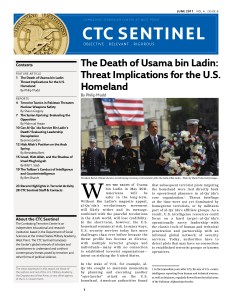Cover Story Overview
The Death of Usama bin Ladin: Threat Implications for the U.S. Homeland
By Phillip Mudd
With the death of Usama bin Ladin in May 2011, Americans will be safer in the long-term. Without Bin Ladin’s magnetic appeal, al-Qa`ida’s revolutionary movement will likely wither and its message, combined with the peaceful revolutions in the Arab world, will lose credibility. In the short-term, however, the U.S. homeland remains at risk. In many ways, U.S. security services today face more challenges than ever before because the threat profile has become so diverse, with multiple terrorist groups and individuals—many with no connection to established terrorist organizations—intent on striking the United States. This article explains why Bin Ladin’s death will weaken al-Qa`ida’s central leadership, as well as al-Qa`ida’s ideological attraction. Yet it warns that the threat from al-Qa`ida’s affiliates, such as AQAP in Yemen, will only grow more pronounced now that Bin Ladin is dead. The article concludes by showing why U.S. authorities face an even greater challenge today, as threat detection has become more labor intensive due to the disconnected nature of current terrorist plots.
 Skip to content
Skip to content

